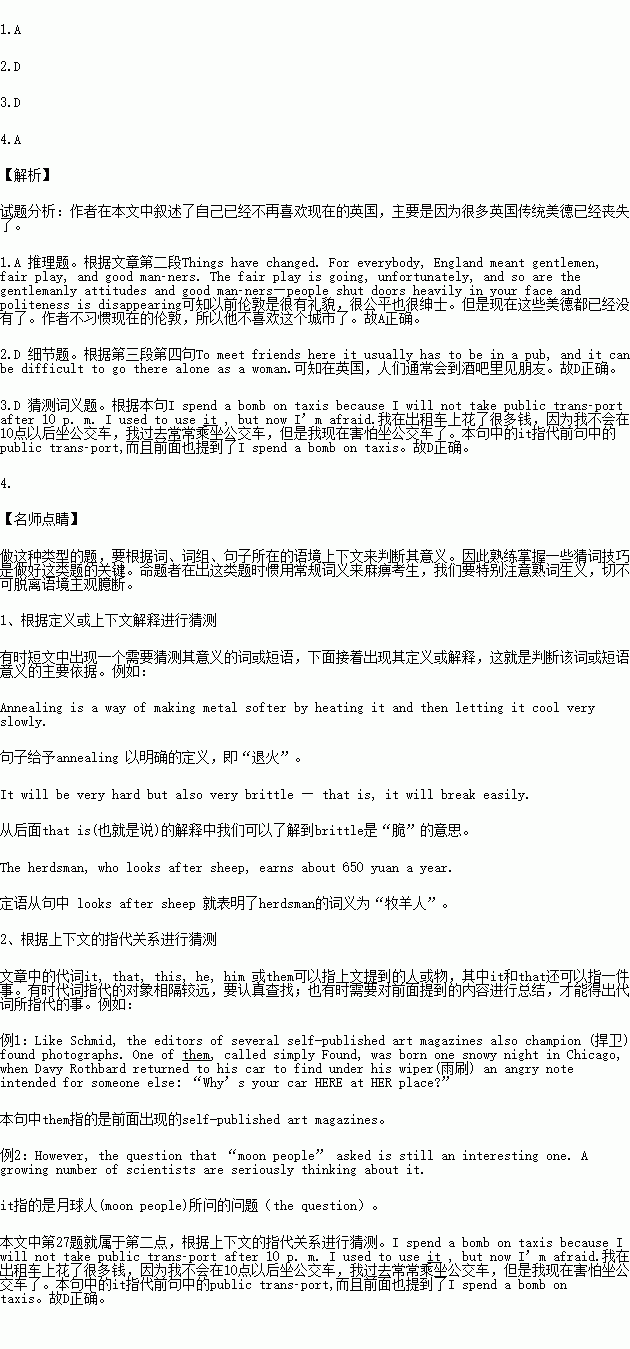题目内容
I fell in love with England because it was quaint (古雅)—all those little houses, looking terribly old-fashioned but nice, like dolls’ houses. I loved the countryside and the pubs, and I loved London. I’ve slightly changed my mind after seventeen years because I think it’s an ugly town now.
Things have changed. For everybody, England meant gentlemen, fair play, and good manners. The fair play is going, unfortunately, and so are the gentlemanly attitudes and good manners—people shut doors heavily in your face and politeness is disappearing.
I regret that there are so few comfortable meeting places. You’re forced to live indoors. In Paris I go out much more, to restaurants and nightclubs. To meet friends here it usually has to be in a pub, and it can be difficult to go there alone as a woman. The cafes are not terribly nice.
As a woman, I feel unsafe here. I spend a bomb on taxis because I will not take public transport after 10 p. m. I used to use it , but now I’m afraid.
The idea of family seems to be more or less non-existent in England. My family is well united and that’s typically French. In Middlesex I had a neighbor who is 82 now. His family only lived two miles away, but I took him to France for Christmas once because he was always alone.
1.The writer doesn’t like London because she ______.
A. is not used to the life there now
B. has lived there for seventeen years
C. prefers to live in an old-fashioned house
D. has to be polite to everyone she meets there
2.Where do people usually meet their friends in England?
A. In a cafe. B. In a restaurant.
C. In a nightclub. D. In a pub.
3.The underlined part “it” (in Para. 4) refers to______.
A. a taxi B. the money
C. a bomb D. public transport
4.The writer took her neighbors to France for Christmas because he ______.
A. felt lonely in England
B. had never been to France
C. was from a typical French family
D. didn't like the British idea of family


